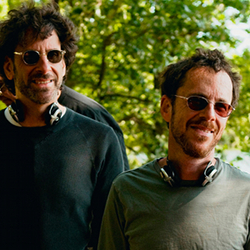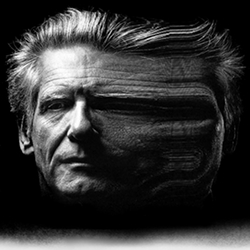
Subversive Saturday: The Act of Killing (2012) - NP Approved
Cast: Haji Anif, Syamsul Arifin, Sakhyan Asmara
Director: Joshua Oppenheimer
Country: Denmark | Norway | UK | Sweden | Finland
Genre: Documentary | Crime | History
Official Trailer: Here
Editor’s Notes: The following review is a continuation of Matthew Blevins’ Subversive Saturday series.
Joshua Oppenheimer’s The Act of Killing is a rare mix of documentary and narrative elements that attempts to reconstruct the events surrounding the purge of communism from Indonesia in the mid 1960s by allowing the perpetrators of the transgressions against humanity to tell their story as they attempt to live the rest of their lives knowing the irreconcilable atrocities can never be washed from their souls. By creating dramatizations of the events that transpired in the mid-60s, mass murderers must face their sins with unblinking candor and expose uncomfortable truths to a world that has largely ignored the horrific events that have shaped the current political climate of Indonesia as its leaders have created unofficial alliances with marauders and thugs to maintain a state of fear and oppression, justifying the misdeeds of gangsters as necessary evils needed to maintain order. Though the events surrounding the purge of communism from Indonesia remain ambiguous and the true extent of the damage may never be known with absolute certainty, The Act of Killing serves more as a rare deconstruction of man’s capacity for evil deeds as we stare directly into the faces of the brutes and tyrants that perpetrated the execution of upwards of half a million people and watch their haunted eyes contend with the realities of their former brutality.
By creating dramatizations of the events that transpired in the mid-60s, mass murderers must face their sins with unblinking candor
 A procession of colorfully dressed dancers emerge from the mouth of a large fish set in the foreground as fantastical pink hues intermingle with billowing clouds in the sky and irradiated green grass glows with improbably vivid hues. We are given no context for the gorgeous composition nor the underlying obscenity of such a beautiful shot forged in the minds of scoundrels and thugs, like a Hitler painting meant to undeservedly expose the tender soul behind the tyrannical exterior. This shot gives way to breathtaking waterfalls and an odd assortment of characters seemingly dancing for the glorification of humanity or some odd manifestation of Indonesian nationalism, but this dream reality evaporates into the ether and as the pinkish misty fog is lifted we are left with the grim actualities of Indonesian city streets as we are given a brief overview of the brutal events that gave the film’s central characters their notoriety.
A procession of colorfully dressed dancers emerge from the mouth of a large fish set in the foreground as fantastical pink hues intermingle with billowing clouds in the sky and irradiated green grass glows with improbably vivid hues. We are given no context for the gorgeous composition nor the underlying obscenity of such a beautiful shot forged in the minds of scoundrels and thugs, like a Hitler painting meant to undeservedly expose the tender soul behind the tyrannical exterior. This shot gives way to breathtaking waterfalls and an odd assortment of characters seemingly dancing for the glorification of humanity or some odd manifestation of Indonesian nationalism, but this dream reality evaporates into the ether and as the pinkish misty fog is lifted we are left with the grim actualities of Indonesian city streets as we are given a brief overview of the brutal events that gave the film’s central characters their notoriety.
The Act of Killing weaves reconstructions of the memories and dreams of its unofficial enforcers of the state’s anti-communist regime with interviews and interactions between aggressors and victims. Half-century old wounds remain unhealed and the disparate groups interact with tepid candor between their emotionally charged reenactments of past events. There is a shared need for the true story to find its way to the light for the first time in history, and those that have moved on from their violent beginnings to careers in politics are rightfully afraid of the impact that these truths will have on their public image. Some feel the need to unburden their conscience with the revelation of these damning truths in the hopes of making peace with the inner conflict that has haunted them for half a century, while others see genocide as an evil necessity for societal evolution. Victims have an overwhelming need for their untold stories to be revealed as the anger from losing a father or brother is still palpable and the apathetic world knows nothing of their tragic stories. This strange reunion would prove cathartic to some and painful to others, but in their attempts to retell the historic events they create the closest thing we may ever achieve to an accurate account of what really happened in those tumultuous years.
The gangs of murderers would eventually form the basis for the Pemuda Pancasila, a right-wing political party that relishes in their sordid roots as a means of unspoken intimidation. They hold rallies filled with paid-off participants as they wear flashy impractical orange camouflage and spout their practiced agenda with apathetic bombast. The killings have slowed, but the intimidation is still readily apparent as we watch members collect dues from Chinese shop owners and wonder if the awkward exchanges would be more brutal had the cameras not been present. They delve into the semantics of the definition of “gangster” and see themselves as free men, as does the government that benefits from their bully tactics as a source of law and order as they remain conveniently detached with nothing more than an unofficial endorsement to connect them to illegal activities.
The killings have slowed, but the intimidation is still readily apparent as we watch members collect dues from Chinese shop owners and wonder if the awkward exchanges would be more brutal had the cameras not been present.
 Anwar Congo gives us pragmatic insight into the logistics of murdering a thousand people economically and with minimal bloodshed. As we watch him recount the evolution of his methods, we see the burden of the past betraying the man’s apathetic exterior with saddened eyes or a momentary look of shock. He becomes increasingly distraught as he sees the places that he has likely attempted to erase from his mind and as he reenacts the situations that he had carried out a thousand times before. It isn’t until he plays the role of the victim that the emotions become overwhelming and he deludes himself into believing he finally knows the plight of those he had murdered. I suppose that feeling empathy at all is a giant leap for a sociopath, and there may be the possibility for redemption in the human soul as the ship of Theseus that is our body still carries the cargo of guilt and sin on its long journey to death.
Anwar Congo gives us pragmatic insight into the logistics of murdering a thousand people economically and with minimal bloodshed. As we watch him recount the evolution of his methods, we see the burden of the past betraying the man’s apathetic exterior with saddened eyes or a momentary look of shock. He becomes increasingly distraught as he sees the places that he has likely attempted to erase from his mind and as he reenacts the situations that he had carried out a thousand times before. It isn’t until he plays the role of the victim that the emotions become overwhelming and he deludes himself into believing he finally knows the plight of those he had murdered. I suppose that feeling empathy at all is a giant leap for a sociopath, and there may be the possibility for redemption in the human soul as the ship of Theseus that is our body still carries the cargo of guilt and sin on its long journey to death.
The Act of Killing will pass through the annals of time as one of the most important documentaries of this century. Besides using indirect tools and the recollections of former sociopaths to reconstruct the events of the past and recounts the genocide in Indonesia not often found in history books, we are also given an extraordinarily rare glimpse into the souls of men allowed to live free after committing mass murder and the human’s soul to allow itself to heal enough to carry on, no matter how horrific the former deeds may have been. Heartlessness is often the result of blind faith in an agenda and not the natural state of humankind, and The Act of Killing shows us among many things that we can redeem ourselves from the most egregious of sins, if only enough to carry on living.
Related Posts
![]()
Matthew Blevins
![]()
Latest posts by Matthew Blevins (see all)

























